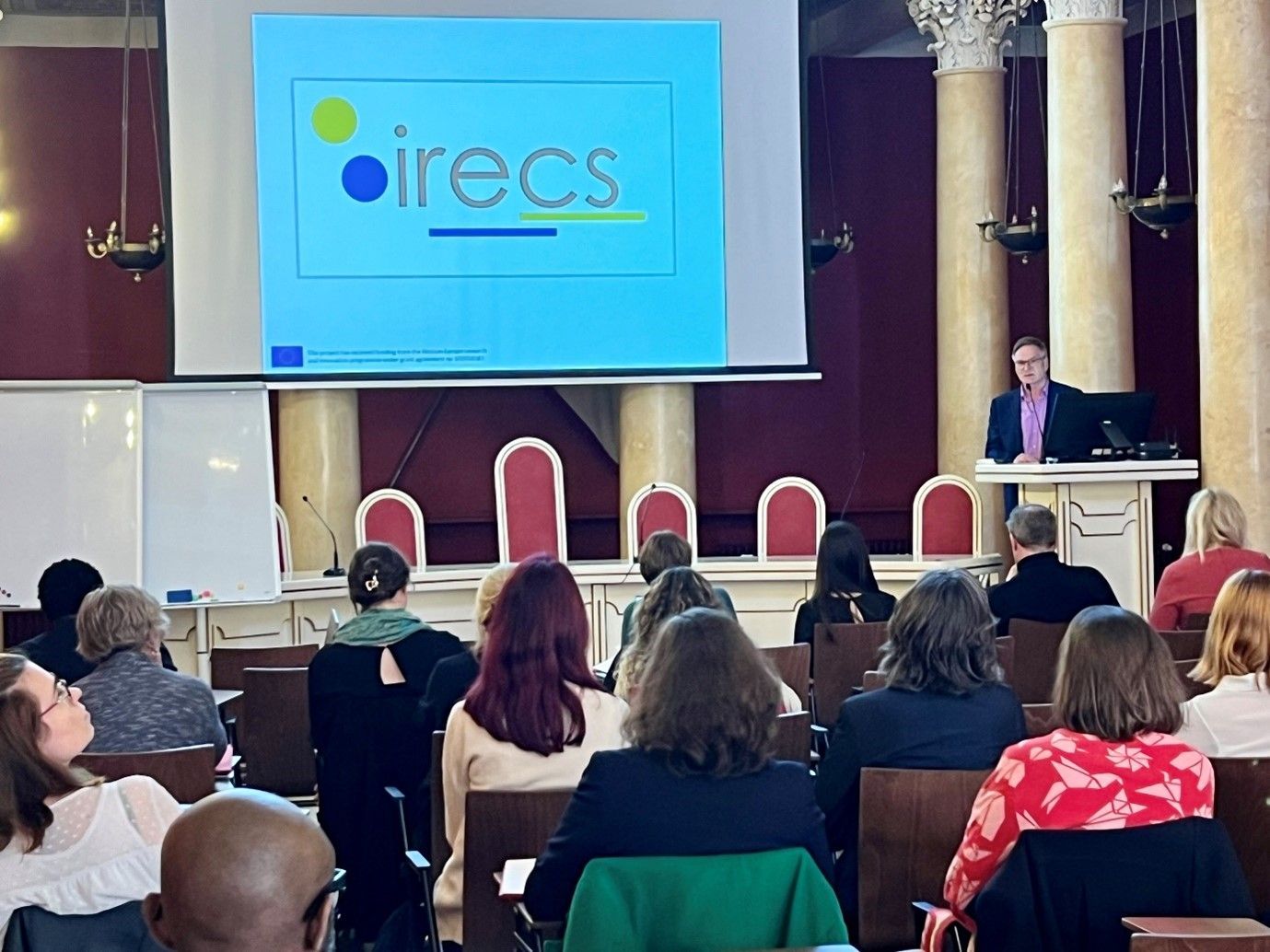BLOG
Adapting sustainable training materials on research ethics for ethics experts and researchers on a global scale
irecs consortium members meeting 2024
May 2024
The irecs project
Emerging technologies, such as generative AI and genome editing, have significantly transformed our ways of living and working. As such, these advancements have had a major social impact, leading to numerous ethical issues and the need for research ethics in developing new technologies.
The irecs project has analysed ethical challenges in new technologies and developed research ethics training materials with a particular focus on extended reality, AI for health, genome editing and biobanking. As the irecs project reaches its midpoint, it is currently focusing on effectively implementing and integrating these training materials into practice.
The irecs consortium members meeting
In order to summarise the first half of the irecs project and plan for its forthcoming stages, the irecs team met at the University of Vilnius on 6-7 May 2024 for the irecs consortium meeting. The consortium meeting serves as a pivotal platform for the dissemination of irecs’ training materials through existing research ethics and integrity platforms, while sharing and reflecting on the project’s progress so far.
On the first day of the consortium, Dirk Lanzerath (the project coordinator), Sandra Scholl and Daniela Proske from the University of Bonn overviewed the accomplishments of the first half of the project. These accomplishments included irecs’ analysis of the challenges posed by emerging technologies and our development of research ethics training materials and ethics review tools. Additionally, participants actively engaged in discussions on the implementation of training programs and the sustainable adaptation to the ethics review processes.

On the second day, members of the European Network of Research Ethics Committees (EUREC) joined as stakeholders to test and discuss the innovative materials developed by irecs to enhance Research Ethics Committees’ (RECs’) reviews of emerging technologies.
A total of 53 participants from 19 different countries attended the consortium meeting. Non-European partners also participated, including Wei Zhu from China, Francis Kombe from South Africa and Sangkyung Bae from South Korea. The participation of non-European partners from Asia and Africa alongside our European partners added significant value to the consortium meeting.
How irecs will contribute to research ethics training at a global scale
The overarching objective of the irecs project is to develop sustainable and standardised research ethics training materials, and adapt them at an international level beyond the confines of Europe. The latter phase of the irecs project aims to complete world-class and sustainable training materials, and put them into practice on an international scale in order to develop new technologies in an ethical way.
Due to innovative technologies, virtual reality has no physical borders or time differences between nations, making the whole world exist as one ‘nation’. Accordingly, research ethics for virtual reality should be discussed on a worldwide scale, beyond national borders and continents. In a similar vein, South Korea has recognised the importance of research ethics and has steadily made efforts to prevent ethically and socially adverse effects of new technologies. For instance, the Korean Ministry of Science and ICT (Information and Communication Technology) enacted and announced the Metaverse Practical Ethics guideline in December 2023. This guideline provides specific instructions for various situations for not only researchers and developers but also for users, creators and stakeholders in the metaverse ecosystem. Furthermore, the Korean government has emphasised that such guidelines should be spread globally to ensure that the new digital world is well-regulated. Based on this worldwide attention and participation, the irecs project is expected to play a leading role in building a consensus and implementing the standards for research ethics for emerging technologies across borders.
The irecs consortium meeting was therefore a productive starting point for this transnational dialogue, which promises to add great value thanks to the efforts within our project.
Author:
Sangkyung Bae, Korea Advanced Institute of Science & Technology (KAIST)
